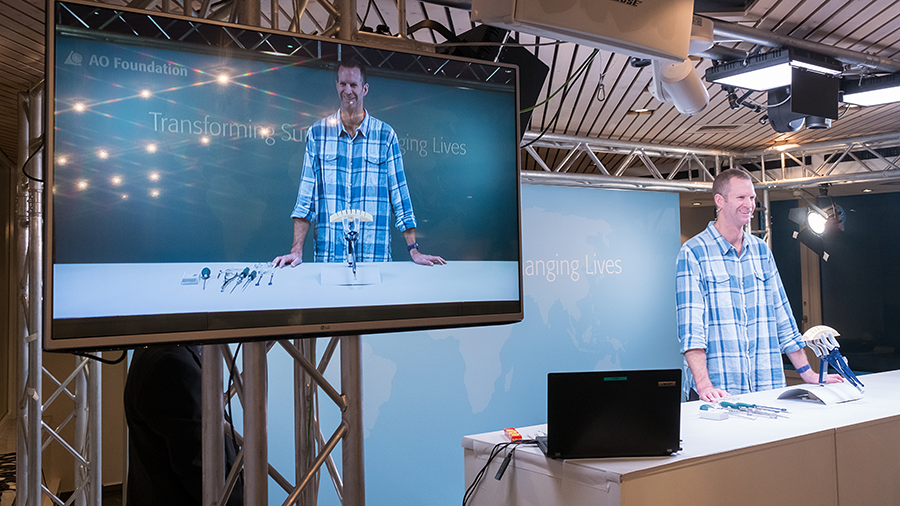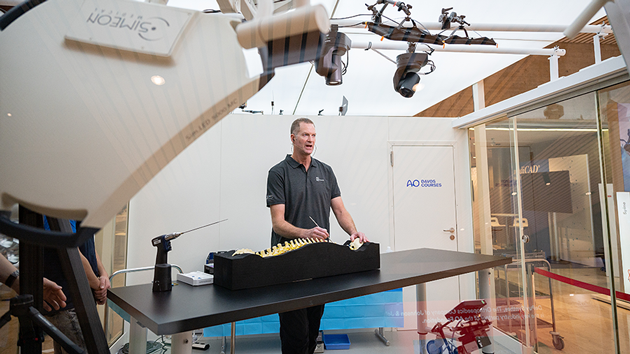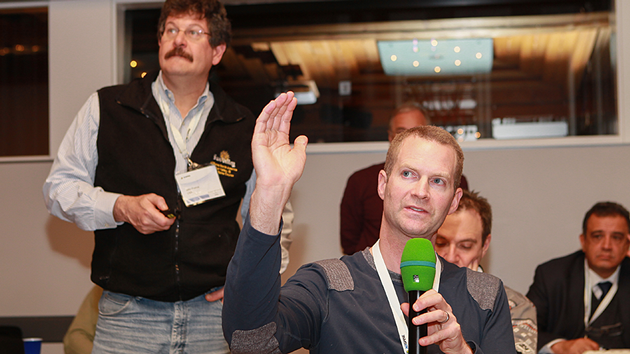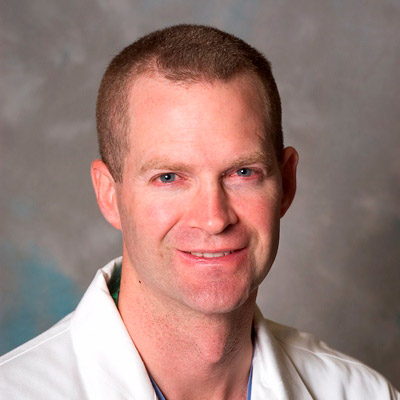Richard Bransford, AO Spine Education Commission Chairperson-elect, starts with clear vision

AO Spine Education Commission’s new Chairperson-elect Richard Bransford is well grounded in AO through his many roles over the years. Talking to AO Spine, Bransford stresses the importance of diverse collaborations and adapting to new ways of learning and sharing information. He has a clear understanding what the new generations of spine surgeons need and a vision where he wants to lead us.
Bransford will take over as Chairperson from Emre Acaroglu on July 1, 2023. Welcoming Bransford with excitement to his new role, Acaroglu noted that Bransford has been active in education in AO Spine for a number of years, including as Education Officer for AO Spine North America.
“So, although he is the ‘new’ chair, he is not new to the Education Commission. He is also involved in our flagship project—the Global Spine Diploma Exam,” Acaroglu points out, describing Bransford as “elemental in the project’s current success.”
Diverse opportunities for cooperation
Bransford has a nuanced understanding of the AO and how it has changed and grown in recent years. Speaking at the Global Spine Congress 2022, Bransford pinpointed the diverse, and yet largely unexplored, opportunities for cooperation and synergies.
“When you look at the Knowledge Forms, you look at the expert groups, you look at education, you look at research, you look at fellowship, and community development, I think there's a lot of opportunity to collaborate,” he said. This powerful potential exists in all areas, within education and across regions, between education and research, the expert groups, and the AO Technical Commission.
Delivering community-wide comprehensive expert support
Bransford sees the many different issues that members of the community face. The AO provides outstanding surgical education that embraces the latest technologies in AI, VR, and patient personalisation. He also knows that, to have a real and lasting impact, education should address surgeon needs in a practical, relatable way.
Reflecting on recent complications courses in the US and anticipating an upcoming similar course in Davos, “If we do a complications course, then we make it entirely case-based, with real-life cases. We recognize that many of these cases led to legal issues and settlements, so we will have a lawyer join us from North America to have input from a legal standpoint,” Bransford said, noting that ensuring surgeons are better equipped to deal with the psychological stress that comes with litigation, helping them document more effectively, and even do depositions are all important parts of the bigger picture of what education within the AO Spine community means.
Bridging the generation gap
Bransford understands that the growth the AO is experiencing, also means there are greater opportunities for intergenerational exchange. The differences are many—from learning style and the role new technologies play to more fundamental expectations and viewpoints. Face-to-face remains the preferred learning format, but it now exists in a very crowded environment of multiple other avenues for communicating experience, sharing knowledge, and seeking advice.
Bransford understands that “they’re looking at Instagram, they’re looking at Twitter, and that’s how many of the younger learners are passing on their learning, their education, sharing ideas. We still can’t abandon our face-to-face discussions, our face-to-face cadaveric courses, there is still going to be a role for in-person, but I think we are going to see a lot more blended meetings, and what we used to do face-to-face we will do more with people joining from their living room.”




